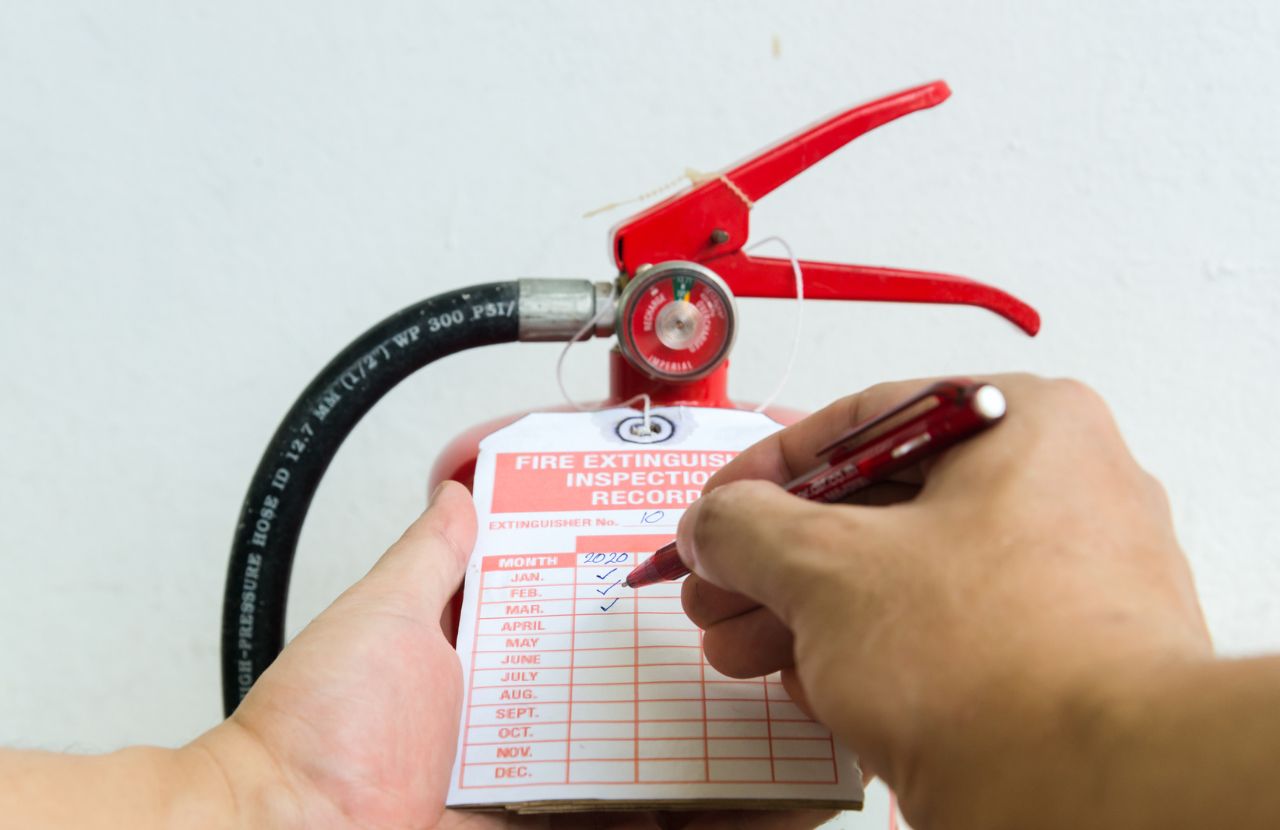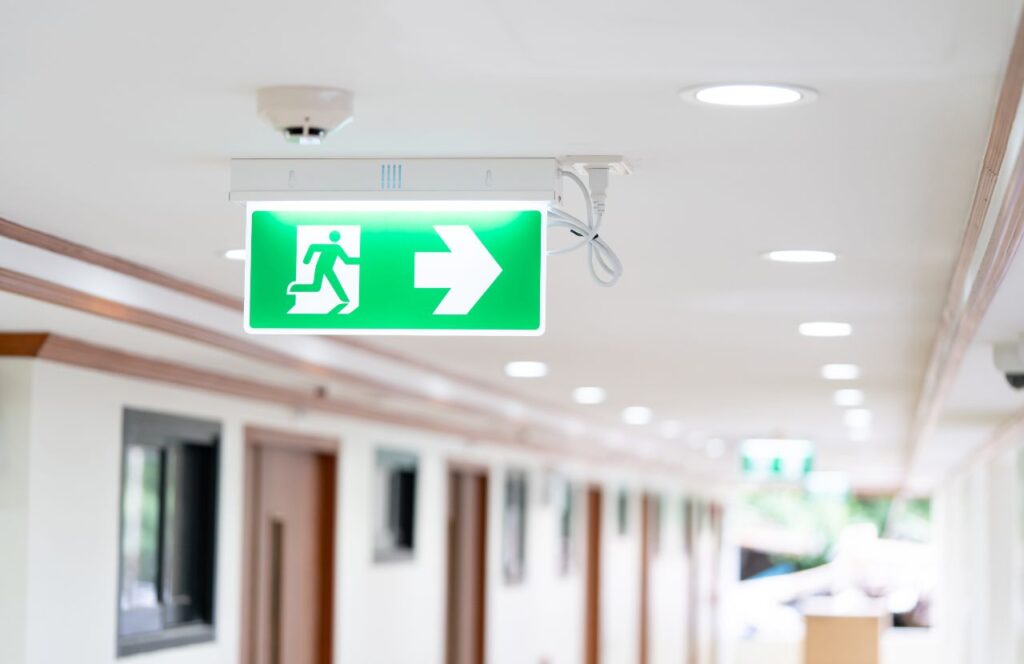
As amendments to the Regulatory Reform (Fire Safety) Order 2005, also known as the ‘Fire Safety Order’ (FSO), came into force earlier this year, I think it’s a good time to explore the definition of ‘competent’ and what it means when choosing a fire risk assessor.
While the Fire Safety Order has always emphasised the importance of ‘competence’, the Building Safety Act 2022 (Section 156, Article 9), has introduced a modification to the Order, by stating that the Responsible Person must not engage anyone to assist them in undertaking or reviewing a fire risk assessment unless that individual is competent.
Following the Grenfell Tower tragedy in 2017, fire risk assessments have become more detailed with a broader scope than before, necessitating a clearer understanding of what ‘competency’ entails.
‘Competency’ is subjective, so here I aim to bring clarity to the term and explain the practical implications for the Responsible Person. It is worth noting that the fire industry is continually advocating for a more concrete definition of competency, stricter adherence to it and improved monitoring.
How do you know a fire risk assessor is competent?
The Building Safety Act 2022, states that a fire risk assessor is regarded as competent when they have:
…sufficient training and experience or knowledge and other qualities to enable [them to] properly to assist in making or reviewing the assessment.
It’s advisable to choose a fire risk assessor who:
- Has proven experience conducting fire risk assessments specifically tailored to your type of building and industry.
- Is registered on the Fire Risk Assessors (FRA) Register.
- Holds professional certification in the field.
- Satisfies the competency criteria set by the Fire Risk Assessment Competency Council.
- Engages in ongoing continuous professional development (CPD)
I explore each of these bullet points in more detail below. In addition, further guidance in selecting a fire risk assessor can be found on the Fire Sector Federation website.
Qualifications and registration
There is no single qualification focused on fire risk assessment competency. Relevant qualifications that incorporate fire risk assessment training are just one piece of evidence that suggest someone might be competent.
However, when seeking external assistance to conduct a fire risk assessment it is advisable for the Responsible Person to choose someone who does have third-party certification.
Not all qualifications hold the same value, so it is important to examine the content and assessment criteria of a course. Some certificates are merely evidence that someone has attended a course. To determine someone’s competency it’s wise to verify the dates on their certificates and seek evidence of continuing professional development (CPD) – more about this below.
Qualifications offer a snapshot of someone’s knowledge at a specific time. Given that the Fire Safety Order introduces new elements to fire risk assessment, competent fire risk assessors are those who ensure their expertise aligns with updated criteria.
Experience
Holding relevant qualifications is only one indicator of competency, the same applies to experience. Having extensive experience in a role doesn’t necessarily mean that the job has been performed adequately and competently.
Experience and qualifications should be considered alongside other indicators of competence such as validation from other experienced fire risk assessors and the outcomes of external peer reviews (which I discuss below).
To gauge a fire risk assessor’s suitability, it’s advisable to consider the specific businesses and premises they have previously worked on and gather references from past clients whose requirements align with yours. These references can offer valuable insights into the risk assessor’s performance and capabilities.
Continuing professional development
Continuing professional development (CPD) is extremely important, especially considering that many new fire risk assessors have only completed a week’s course. This intensive course provides a foundation of knowledge, but gaining skills and experience takes considerable time.
When choosing a fire risk assessor, I recommend looking for someone who invests in their professional development to expand their knowledge and expertise.
CPD may be through workshops, conferences, seminars and specialised courses related to carrying out fire risk assessments. Assessors who stay up to date will be informed about the latest regulations, technologies, and practices in their field.
Here are some other ways fire risk assessors can build competency:
Coaching
Coaching involves a proficient fire risk assessor giving personalised guidance to a less experienced colleague. The coach aids in setting appropriate goals, specifying areas for improvement, and providing constructive feedback. Coaching sessions can be tailored to focus on specific aspects of the role such as assessing fire safety systems.
Coaching (and mentoring and shadowing) ensures specialist knowledge doesn’t only sit with one or two people but is shared across the team.
Mentoring
Matching a new fire risk assessor with a seasoned professional can be invaluable.
A mentor plays a pivotal role in sharing their expertise, providing advice, and assisting the mentee in skills development. By meeting regularly with a mentor, a less experienced fire risk assessor can ask questions, seek advice on complex cases and receive constructive feedback on their fire risk assessments.
Shadowing
Shadowing a senior fire risk assessor is an opportunity for a less experienced assessor to learn through observation.
By joining an experienced assessor on-site, they learn how to apply their knowledge in a practical setting. They will gain insights into different aspects of the fire risk assessment process such as hazard identification, evaluation of risks, and making recommendations to clients.

Peer review
Peer review is the examination of aspects of the fire risk assessment process by other risk assessors. A peer review can be conducted internally within a company or externally by drawing on expertise from the professional community.
The process facilitates constructive feedback which could include identifying omissions and errors, and it’s a chance to share different perspectives on specific matters. Peer review plays an important role in quality assurance and enables professionals to improve their work through collaboration.
Professional validation
An experienced fire risk assessor can check assessments of a less experienced colleague to ensure they are reliable and accurate.
Any gaps or inconsistencies in a fire risk assessment can be identified through this process, providing valuable learning opportunities.
Collaboration
It is hugely advantageous to adopt a collaborative team approach to fire risk assessment, involving assessors with different areas of specialism and diverse experiences.
For a fire risk assessor, being invited to mentor or coach demonstrates that their expertise is valued by their colleagues. This helps to build their reputation, giving clients confidence in their professional capabilities.
Personal skills
The following attributes can help you to determine a fire risk assessor’s overall effectiveness and professionalism, but this list isn’t exhaustive:
- Interpersonal skills. Assessors with good interpersonal skills can collaborate well with clients, stakeholders, and other fire safety professionals. Being able to establish positive relationships facilitates smooth communication throughout the fire risk assessment process.
- Empathy. Empathy is essential for understanding the concerns and needs of clients. A considerate approach ensures safety measures are practical and take into account the wellbeing of everyone affected.
- Communication skills. Effective communication is fundamental. A fire risk assessor should be able to clearly explain assessment findings and convey recommendations to clients in a clear, concise way.
- Adaptability. Fire risk assessors can encounter challenging situations in different settings. The ability to adapt to varying circumstances and respond appropriately is vital for conducting assessments and implementing risk mitigation strategies.
When choosing a fire risk assessor, it is a good idea to consider not only their professional competency, but also their ability to relate to others, communicate effectively and adapt to challenging situations.
Recognising and accepting limitations
It is crucial that all fire risk assessors recognise their limitations.
There will inevitably be a time when an assessor encounters a situation that’s beyond their experience. When this happens, a competent assessor will acknowledge this and step back. They may bring in someone with additional experience or explain to the Responsible Person that they cannot complete the risk assessment.
While this situation is not ideal, it is preferable to the assessor attempting to navigate their way through, which is potentially dangerous with serious consequences.
Can you reduce the cost of hiring a fire risk assessor?
Considering the pressing need for organisations to reduce budget throughout their operations, finding the right balance between expertise and cost can be challenging.
Opting for a fire risk assessment team rather than a single assessor on a project can provide a blend of experience and specialised knowledge. But having more fire risk assessors is naturally more expensive at the outset.
Cost can be reduced by instructing a single fire risk assessor, which is the traditional approach. However, this can lead to slower progress and the assessor may require additional assistance, which increases costs in the long term.
There is no one-size-fits-all solution to this dilemma. For smaller projects with well-defined scopes of work, a single fire risk assessor may suffice. However, larger and more complex projects, such as multi-occupancy estates or specialised premises like hospitals may demand the expertise of a team.
While a cost-effective solution may seem enticing, it is essential to consider that quality often comes at a price. Rectifying the errors of a subpar assessment can prove far more costly, not just in financial terms but also in other consequential ways.
Ultimately, finding the right approach requires a careful evaluation of a project’s size, scope, and specific requirements, alongside consideration of the potential long-term consequences of a chosen assessment strategy.
The Praxis42 approach to competency
At Praxis42 we have taken steps to ensure that our fire safety consultants and our clients are clear about what we define as competency. By communicating our expectations and establishing a structure that supports competency, we provide our fire risk assessors with the confidence to effectively carry out their duties.
And let’s remember that from an assessor’s point of view, putting your name on a completed fire risk assessment is no small thing. Failure to complete a job competently results in repercussions, including loss of life and prison sentences.
As part of this process, we have systems in place which support our clients to manage the outcomes of fire risk assessments. A large organisation may have multiple fire assessments in a short time, so it’s essential that there is an efficient, pragmatic process in place to prioritise any remedial work that’s necessary.
At Praxis42, we set minimum qualifications and experience for our fire assessors which are specific to every premises and type of work.
We ensure that new fire assessors joining us receive mentoring, shadowing, and coaching. This means knowledge from more experienced assessors is passed on, growing expertise across the team. Our fire risk assessors are never expected to carry out work outside their competence.
Ensuring a fire risk assessment is conducted by a competent individual is essential. Our fire risk assessors can support your organisation to manage fire risks while ensuring compliance with the law.
Contact our approachable team to find out about our fire risk assessment services and to discuss how we can help.





